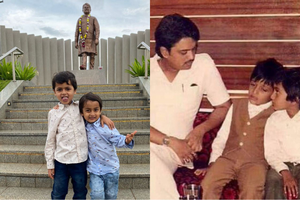‘Heart-breaking Facts, Perverse Order’: SC Sets Aside HC Verdict On Discharge Of Rape Accused

New Delhi, Aug 19: The Supreme Court, terming the facts of a litigation as “quite heart-breaking”, has set aside an “utterly incomprehensible” judgment of Madhya Pradesh High Court, discharging an accused of rape on the ground of delay in the registration of the FIR.
A bench of Justices D.Y. Chandrachud and J.B. Pardiwala said: “The impugned order of the High Court could be termed as perverse and not sustainable in law”.
It noted that facts of the litigation are quite “heart-breaking” and more disturbing is the “utterly incomprehensible” judgment of the high court discharging the accused of the offence of rape essentially on the ground of delay in the registration of the FIR. The top court had pronounced the judgment on August 12; however, it has not been uploaded on the apex court website so far.
The bench reiterated that high court order is utterly incomprehensible and it has not come across a case where the high court has thought fit to discharge a rape accused on the ground of delay in the registration of the FIR.
Justice Pardiwala, who authored the judgment on behalf of the bench, said the high court proceeded altogether on a different footing, as it thought fit to discharge the accused and the entire case put up by the parents of the deceased was doubtful.
“The law is well settled that although it is open to a high court entertaining a petition under Section 482 of the CrPC or a revision application under Section 397 of the CrPC to quash the charges framed by the trial court, yet the same cannot be done by weighing the correctness or sufficiency of the evidence,” he said.
The high court had passed the judgment on December 2, 2021 and the father of the victim moved the apex court against the verdict.
The bench noted that in a case praying for quashing of the charge, the high court should have examined if the entire evidence produced by the prosecution is to be believed, would it constitute an offence or not.
It said when an accused seeks quashing of charge framed against him, the superior court “should not interfere with the order unless there are strong reasons to hold that in the interest of justice and to avoid abuse of the process of the court a charge framed against the accused needs to be quashed”.
The top court said: “One another disturbing feature of this litigation is that it is the unfortunate father of the deceased who had to come before this court seeking justice. It was expected of the state to challenge the illegal order passed by the high court.”
It also said the high court’s conclusion about the age of the deceased and also as regards the delay in lodging the FIR besides being a premature assessment of evidence, is also attributable to the wrong premises on which the high court’s reasoning is based.
The top court allowed the trial court to proceed with the trial in accordance with the December 2020 order of framing charge.
In April 2020, the victim had delivered the child on a bench of a hospital and informed her father that Amit Kumar Tiwai was the father of the child. Later, the victim committed suicide at the hospital. It was alleged that the victim committed suicide out of shame as she had delivered an illegitimate child of the accused. An FIR was lodged against Tiwari and the trial court framed charges for rape and provisions of POCSO Act against him.
However, the top court did not interfere with the decision of the trial court of discharging the accused Tiwari, from the offence punishable under Section 306 of the IPC (abetment to the commission of suicide).
With IANS Inputs…






